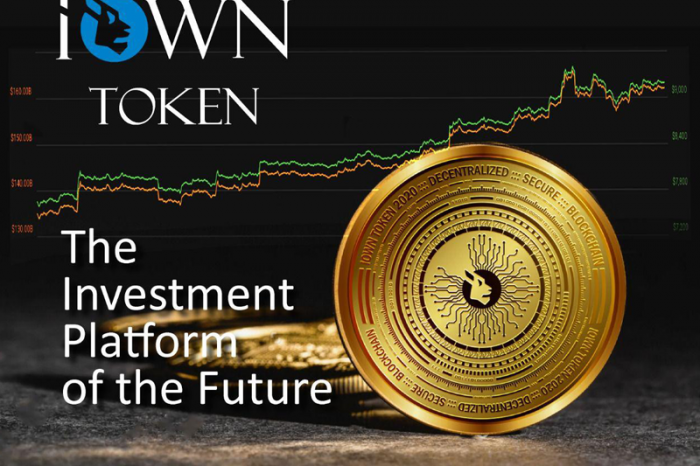Reconciling KYC/AML Initiatives With Blockchain Data Privacy

The progression of KYC/AML initiatives by governments and blockchain-oriented companies alike has amplified significantly over the last year. With CipherTrace reporting more than $356 million in crypto assets stolen from exchanges in Q1 2019, the need for better AML processes is evident.
The problem arises not only from the fact that exchanges have funds stolen from them, but that many of them, particularly the smaller exchanges in obscure locales, become car washes for money laundering.
Better AML typically results from improved KYC and is subject to the oversight of legal jurisdictions, but many blockchain and cryptocurrency projects are taking matters into their own hands.
“The reality is that blockchains are not an area that governments can easily regulate,” details Maxonrow CEO, Mark Homeier. “The onus is on companies to provide the collaborative mindset and infrastructure that is conducive to blockchain innovation and government auditing, concurrently.”
Homeier and Maxonrow’s position is reflective of a broader industry narrative, and an area they are actively seeking to make a considerable impact in Singapore.
Maxonrow’s Identity Verification Chain
One of the most salient value propositions of blockchain-based identity solutions is data sovereignty. In particular, the ability of users to exercise absolute control over their personal data via attestations that preserve privacy.
The concept causes friction with governments, who want improved KYC/AML across the financial sector, most of all in cryptocurrencies and digital assets. Decentralized identity solutions can grant the data sovereignty component to users, but governments are often left with subpar KYC standards that are not congruent with their systems — or auditing requirements.
Reconciling the goals of privacy-preserving data sovereignty and government compliance in an era of enormous AML implications (i.e., exchange hacks) is clearly challenging.
“Traditional systems of law have proved to be inefficient in regulating Internet technologies, and contemporary law continues its attempt at adapting to a rapidly changing cyberspace to no avail,” says Homeier. “The only possible solution we see seems to be the acceptance of the legal autonomy of the blockchain but to allow governments, through legal action, to regularly audit and intervene when illegal activities occur.”
Maxonrow is built as a standalone blockchain solution to this problem. Based on the Tendermint consensus engine, which underscores networks like Cosmos, the Maxonrow blockchain integrates KYC/AML checks for every user, and also uses a set of validators, who after going through KYC, also submit to formal evaluation and sign legal documents for overseeing appends to the blockchain.
“The idea is to subject malicious validators to both financial and legal risks, and build in the type of oversight and accountability that governments are looking for in financial solutions,” says Homeier.
One of the primary features of the blockchain is its “Identity Chain,” which encrypts user information and enables them to control their data from their local device. Users generate a wallet address and are subject to a KYC/AML check which is included in the blockchain as a whitelisting signature. Ongoing transactions check the whitelist validity, allowing regulatory governance of the system.
In an appeal to governments, particularly in Singapore where Maxonrow is based, governments can audit the transactions for individuals and freeze their accounts in cases of illegal activities.
Users can control and revoke access to various services using their identification data, but governments act as the ultimate managers of KYC validity.
“The paradox of reconciling the KYC/AML resources required for effective crime-fighting tools that governments seek with the self-sovereign, data privacy narrative of cryptocurrencies is likely the biggest challenge facing the industry,” says Homeier.
Towards a More Collaborative Regulatory Environment
The compromise between government partialities and self-starter blockchain and cryptocurrency companies is not strictly relegated to Maxonrow either. For example, CipherTrace, the blockchain forensics company, has recently partnered with both Rakuten and Binance in an effort to assist in the consolidation and self-regulation of AML surveillance for cryptocurrency exchanges.
Similarly, The Malta Financial Services Authority, the agency behind Malta’s crypto-friendly regulatory haven, has also partnered with CipherTrace.
For Maxonrow, their existence in Singapore, who has some of the most well-defined guidelines on KYC/AML in the crypto sphere, is a boon for accomplishing their vision. Singapore, along with other blossoming Southeast Asian markets are at the forefront of developing definitive regulatory frameworks for blockchains and digital assets.
However, at the core of what they want, is for blockchain projects to meet them in the middle: a compromise between the cypherpunk roots of cryptocurrency and the necessary government oversight (i.e., KYC/AML) to effectively mitigate criminal activity that leverages crypto assets.
Without such an amicable relationship, innovation is likely to stagnate in the face of growing government pressure amid the endemic illegal activities that use cryptocurrencies for money laundering.
“For many initial projects, the inability of the government to intervene was the reason they developed their solutions,” says Homeier. “But for the industry to have a future, government regulation is crucial. As a developer we need to make a system does not interfere with the government’s ability to prosecute criminal activities.”
Discuss this news on our Telegram Community. Subscribe to us on Google news and do follow us on Twitter @Blockmanity
Did you like the news you just read? Please leave a feedback to help us serve you better
Disclaimer: Blockmanity is a news portal and does not provide any financial advice. Blockmanity's role is to inform the cryptocurrency and blockchain community about what's going on in this space. Please do your own due diligence before making any investment. Blockmanity won't be responsible for any loss of funds.














